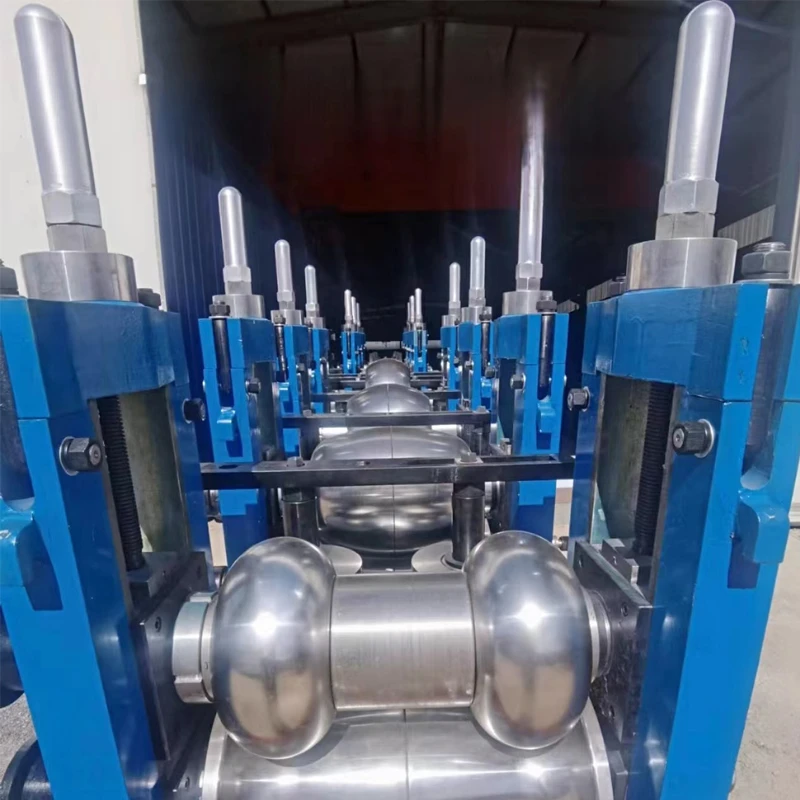Understanding the Benefits and Process of Cold Rolling Aluminum Materials
The Process and Benefits of Cold Rolling Aluminum
Cold rolling aluminum is an essential process in the manufacturing of various aluminum products. This method involves deforming aluminum at room temperature, which results in enhanced mechanical properties and surface finishes. In this article, we will explore the cold rolling process, its advantages, and its applications in various industries.
Understanding Cold Rolling
Cold rolling is a metalworking process in which alloyed aluminum is passed through rollers at room temperature to achieve the desired thickness and mechanical properties. Unlike hot rolling, where materials are processed at elevated temperatures, cold rolling takes place below the recrystallization temperature, which significantly affects the material's characteristics.
The cold rolling process typically involves several stages, beginning with the preparation of the aluminum ingot. The ingot is first heated to a workable temperature and then passed through a series of rollers that progressively reduce its thickness. As the material is rolled, it becomes thinner, longer, and stronger due to the work hardening effect—a phenomenon where the material’s dislocation density increases, leading to greater strength and hardness.
Advantages of Cold Rolling Aluminum
1. Enhanced Mechanical Properties One of the primary benefits of cold rolling aluminum is the improvement in its mechanical properties. The process increases the yield strength and tensile strength of the metal, making it suitable for applications that require sturdy and durable materials.
2. Better Surface Finish Cold rolled aluminum products typically exhibit a smoother and more aesthetically pleasing surface finish compared to those produced through hot rolling. This quality is crucial for applications where appearance matters, such as in automotive and architectural designs.
3. Dimensional Precision The cold rolling process allows for tighter tolerances and dimensional accuracy, which means that manufacturers can produce components that fit together seamlessly. This precision is vital in industries where consistency is crucial, such as aerospace and electronics.
4. Minimal Thermal Distortion Since cold rolling is performed at room temperature, it eliminates the thermal distortion often associated with hot rolling. This precision ensures that the final products retain their shape and integrity, reducing the need for further machining.
cold rolling aluminum

5. Recyclability Aluminum is a highly recyclable material, and cold rolling does not hinder its recyclability. This makes cold-rolled aluminum an environmentally friendly choice for manufacturers looking to reduce their carbon footprint.
Applications of Cold Rolled Aluminum
Cold rolled aluminum is used in a wide range of applications across various industries due to its excellent mechanical properties and versatility. Some of the key sectors that utilize cold rolled aluminum include
- Aerospace Cold rolled aluminum sheets and plates are often employed in aircraft components and structures due to their lightweight and high strength-to-weight ratio.
- Automotive The automotive industry increasingly opts for cold rolled aluminum for body panels, wheels, and structural components, thanks to its ability to reduce weight while maintaining strength.
- Construction The construction sector utilizes cold rolled aluminum in window frames, roofing, and facades. Its aesthetic appeal and resistance to corrosion make it an ideal choice for both residential and commercial buildings.
- Electronics Cold rolled aluminum is also found in electronic enclosures and components, where low weight and high durability are required.
- Packaging In packaging, cold rolled aluminum sheets are used for producing cans, foils, and wraps, taking advantage of aluminum's barrier properties and formability.
Conclusion
Cold rolling aluminum is a sophisticated and beneficial manufacturing process that enhances the material's properties and extends its range of applications. With its ability to provide high strength, improved surface quality, and excellent dimensional precision, cold rolled aluminum continues to play a crucial role in numerous industries. As technology advances, the demand for cold rolled aluminum products is likely to grow, further cementing their importance in modern manufacturing and design.
-
High Frequency Straight Seam Welded Pipe Production Line-BzZhou Xinghua Machinery Equipment Manufacturing Co., LTD.|line pipe steel&welded gas pipeNewsJul.30,2025
-
High Frequency Straight Seam Welded Pipe Production Line-BzZhou Xinghua Machinery Equipment Manufacturing Co., LTD.|High Precision&Automated SolutionsNewsJul.30,2025
-
High Frequency Straight Seam Welded Pipe Production Line - BzZhou Xinghua Machinery Equipment Manufacturing Co., Ltd.NewsJul.30,2025
-
High Frequency Straight Seam Welded Pipe Production Line-BzZhou Xinghua Machinery Equipment Manufacturing Co., LTD.|Precision Welding, High EfficiencyNewsJul.30,2025
-
High Frequency Straight Seam Welded Pipe Production Line|BzZhou Xinghua|Precision Welding&EfficiencyNewsJul.30,2025
-
High Frequency Straight Seam Welded Pipe Production Line - BzZhou Xinghua|Precision Engineering&EfficiencyNewsJul.30,2025


